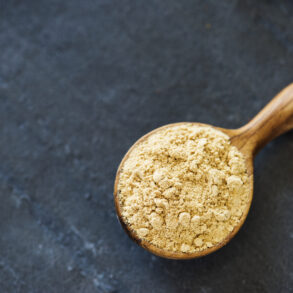Red meat benefits often get a bad rap. But it can also be beneficial for your health.
Today, we’ll dive deep into the benefits of red meat.
We will explore its nutritional value, how it can fit into a healthy diet, and the various ways it supports our body.
Red Meat Benefits in Nutritional Value

Red meat is packed with essential nutrients. These nutrients are vital for our body’s daily functions. Here’s a closer look at what red meat offers:
Red Meat Benefits in Protein Powerhouse
Red meat is a rich source of high-quality protein. Protein is crucial for building and repairing tissues.
It is also important for muscle growth and maintenance.
A single serving of red meat can provide a significant portion of your daily protein needs.
Red Meat Benefits in Essential Vitamins and Minerals
Red meat is loaded with vitamins and minerals. Some of the key nutrients found in red meat include:
- Iron: Iron is essential for making hemoglobin, which carries oxygen in the blood. Red meat contains heme iron, which is easily absorbed by the body.
- Zinc: Zinc is vital for a healthy immune system. It also supports growth and development.
- Vitamin B12: This vitamin is important for nerve function and the production of DNA and red blood cells.
- Vitamin B6: Vitamin B6 helps the body convert food into energy. It also plays a role in brain development and function.
- Phosphorus: Phosphorus is necessary for healthy bones and teeth.
- Niacin: Also known as Vitamin B3, niacin helps improve cholesterol levels and supports brain function.
Red Meat Benefits in Fat Content
Red meat does contain fat, but not all fat is bad. It includes both saturated and unsaturated fats.
While too much saturated fat can be harmful, moderate amounts are fine.
Red meat also contains conjugated linoleic acid (CLA), which has been linked to various health benefits, including improved body composition and reduced risk of certain diseases.
Health Benefits of Red Meat
Red Meat Benefits in Muscle Growth and Repair
As mentioned earlier, red meat is a great source of protein.
Protein is essential for muscle growth and repair. Athletes and bodybuilders often include red meat in their diet for this reason.
The amino acids in protein help build and repair muscle tissues.
This makes red meat an excellent choice for those looking to increase muscle mass.
Red Meat Benefits in Improved Athletic Performance
Red meat contains creatine, which is a compound that helps supply energy to muscles.
Creatine can enhance athletic performance, making it beneficial for those involved in intense physical activities.
Additionally, the iron in red meat helps improve endurance by ensuring efficient oxygen transport in the blood.
Red Meat Benefits in Support for Brain Health
Red meat is rich in vitamins B12 and B6. Both are crucial for brain health. Vitamin B12 is essential for the maintenance of the nervous system.
It also supports cognitive function and mental clarity. Vitamin B6 helps produce neurotransmitters, which are chemicals that transmit signals in the brain.
These vitamins help maintain a healthy brain and reduce the risk of cognitive decline.
Boosted Immune System
The zinc found in red meat plays a vital role in supporting the immune system.
It helps the body fight off infections and aids in the healing of wounds.
A diet that includes adequate zinc can help maintain a strong and effective immune response.
Enhanced Energy Levels
Iron is crucial for energy production.
It helps in the formation of hemoglobin, which carries oxygen from the lungs to the rest of the body.
A deficiency in iron can lead to fatigue and low energy levels.
Including red meat in your diet can help prevent iron deficiency anemia and keep your energy levels high.
Healthy Skin, Hair, and Nails
Red meat provides essential nutrients that support the health of your skin, hair, and nails.
Protein is necessary for the growth and repair of these tissues. Zinc also plays a role in maintaining healthy skin and hair.
Additionally, the B vitamins in red meat support the overall health and appearance of your skin, hair, and nails.
Red Meat in a Balanced Diet
While red meat offers many benefits, it is important to consume it in moderation.
A balanced diet that includes a variety of foods is key to maintaining good health.
Here are some tips for incorporating red meat into a healthy diet:
Choose Lean Cuts
Opt for lean cuts of red meat to reduce the intake of saturated fats.
Examples of lean cuts include sirloin, tenderloin, and round steaks. Trim any visible fat before cooking.
Mind the Portion Size
Portion control is crucial when consuming red meat.
A serving size of red meat is typically around 3-4 ounces, which is about the size of a deck of cards.
Eating the right amount can help you enjoy the benefits without overindulging.
Pair with Vegetables
Balance your meal by pairing red meat with plenty of vegetables. Vegetables are rich in fiber, vitamins, and minerals.
They can help counterbalance the fats in red meat and provide a well-rounded meal.
Cooking Methods
The way you cook red meat can impact its healthiness.
Grilling, broiling, and baking are healthier cooking methods compared to frying.
These methods help reduce the amount of added fats and calories.
Limit Processed Red Meat
Processed red meats, such as sausages, bacon, and deli meats, often contain high levels of sodium and preservatives.
These can be harmful to your health if consumed in large quantities.
Limit your intake of processed red meats and opt for fresh, unprocessed options whenever possible.
Myths and Misconceptions About Red Meat
There are many myths surrounding red meat.
Let’s debunk some of these common misconceptions:
Myth 1: Red Meat Causes Heart Disease
Many people believe that red meat causes heart disease due to its saturated fat content.
However, recent studies suggest that moderate consumption of red meat does not significantly increase the risk of heart disease.
The key is to choose lean cuts and maintain a balanced diet.
Myth 2: Red Meat is Difficult to Digest
Some people think that red meat is hard to digest.
While red meat takes longer to digest than some other foods, it does not cause digestive problems for most people.
Eating red meat in moderation and chewing it thoroughly can aid in digestion.
Myth 3: Red Meat is Bad for the Environment
There is concern about the environmental impact of red meat production.
While it is true that meat production has a larger carbon footprint compared to plant-based foods, sustainable farming practices can help mitigate this impact.
Supporting local and responsibly raised meat can be a more environmentally friendly choice.
Myth 4: You Need to Avoid Red Meat to Lose Weight
Red meat can be part of a weight loss diet. Its high protein content can help you feel full and satisfied, which can prevent overeating.
The key is to choose lean cuts and watch your portion sizes.










